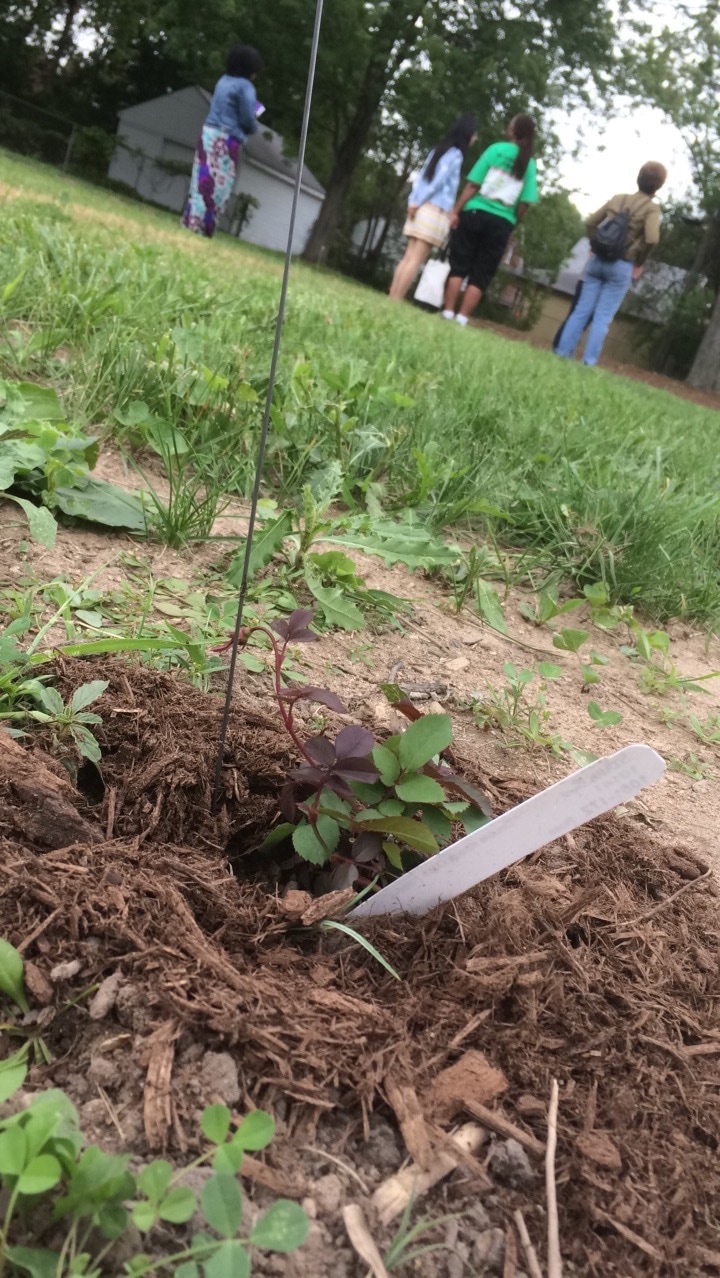It bothers me when people walk with their heads down towards their phones not only because they might walk into me, but because it means they’re apathetic to what surrounds them. Sometimes the most you can learn about a new place you are visiting comes from simply observing what you see around you, whether you are looking out the window of a car or walking around. Especially in the case of visiting a new place, if you’re not observing what’s around you, why did you come in the first place? Will you leave with any different perspective than when you came in?
In Detroit, if you forget to look up, you’ll miss the raised cars with fancy rims. You’ll miss the “light up” bikes with speakers. You’ll miss the little kid sliding down the dirt pile for fun, surrounded by run down houses, making the most of his situation. You will miss the tiny rose bush sprouting out of the barren ground, where it shouldn’t be able to grow, a symbol of Detroit. Even though you may think you understand a new place based off of what you have heard or have seen in your first few days there, it’s another thing to continue to observe and shape your own perspectives. For example, I know Detroit has one of the highest poverty rates in the country, but what does this fact actually mean for other people? Over the past few weeks I’ve listened to conversations of people sharing their struggles of working three jobs a day just to support their families. I’ve seen the composition of different neighborhoods suddenly change as I drove through them. One minute, the neighborhood was concentrated with myriad fast food restaurants, dollar stores, run down houses, and trash… and the next, fancy restaurants, affluent apartments, and clean neighborhoods were ubiquitous. I have also noticed subtle characteristics about the Detroit population. For example, Detroit buses are almost always filled with only African American residents, while the Q- Line is often filled with a much more diverse population. Its observations like this that make me think deeper into the city’s identity, and issues that need solving.
Experiencing Detroit makes me feel many things, one of which is humble. It makes me feel closer to a culture that represents such an important part of American history. It makes me feel like I know the real Detroit, instead of what I thought I knew before I came. It allows me to know that I am leaving Detroit with a different perspective than the one I came in with.
In Detroit, if you forget to look up, you’ll miss the raised cars with fancy rims. You’ll miss the “light up” bikes with speakers. You’ll miss the little kid sliding down the dirt pile for fun, surrounded by run down houses, making the most of his situation. You will miss the tiny rose bush sprouting out of the barren ground, where it shouldn’t be able to grow, a symbol of Detroit. Even though you may think you understand a new place based off of what you have heard or have seen in your first few days there, it’s another thing to continue to observe and shape your own perspectives. For example, I know Detroit has one of the highest poverty rates in the country, but what does this fact actually mean for other people? Over the past few weeks I’ve listened to conversations of people sharing their struggles of working three jobs a day just to support their families. I’ve seen the composition of different neighborhoods suddenly change as I drove through them. One minute, the neighborhood was concentrated with myriad fast food restaurants, dollar stores, run down houses, and trash… and the next, fancy restaurants, affluent apartments, and clean neighborhoods were ubiquitous. I have also noticed subtle characteristics about the Detroit population. For example, Detroit buses are almost always filled with only African American residents, while the Q- Line is often filled with a much more diverse population. Its observations like this that make me think deeper into the city’s identity, and issues that need solving.
Experiencing Detroit makes me feel many things, one of which is humble. It makes me feel closer to a culture that represents such an important part of American history. It makes me feel like I know the real Detroit, instead of what I thought I knew before I came. It allows me to know that I am leaving Detroit with a different perspective than the one I came in with.

 RSS Feed
RSS Feed
